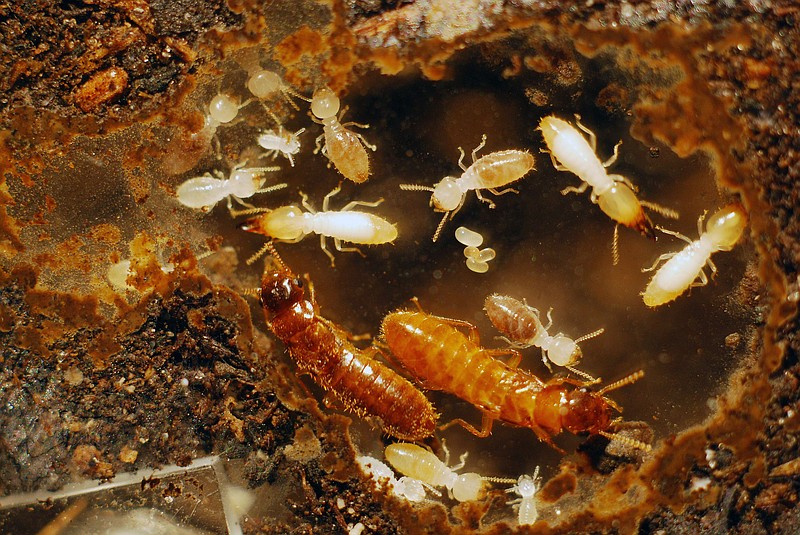We're in the process of buying a house and our sales contract requires the seller provide us with a letter from a termite company stating that the house is termite-free. What should we look for in this letter and are termites really a problem? - Carl Concerned
Dear Mr. Concerned: In a word, yes. I actually know this personally as I just wrote a $300 check for my termite inspection/prevention contract. We maintain our home religiously against critters of all descriptions so imagine our shock last year when the Jody Millard folks announced some suspicious signs of the house chompers. Whether folks live in a lovely home in a nice neighborhood or in a shanty in the back woods, termites don't discriminate. Since the late 1980s, when environmental concerns stopped use of some chemicals used to curtail termite activity, damage has risen in most parts of the country; hence, the mandated certificate most lenders insist upon, which is an extremely important piece of documentation.
From the buyer's (your) perspective, be certain the sales contract notes everything that could possibly be a problem, now or in the future. First, make sure all the surrounding area is thoroughly inspected, not just the house. The latter may be hunky dory, yet the garage or shed may be completely infested so add "garage and all accessory buildings" to the inspection language.
Next, ditch a contract that uses terminology like "accessible" or "visible." Crawl spaces, for instance, may not be very "accessible" but have a huge risk of infestation. Wall-to-wall carpet-covered wooden floors in basements often hide termites (not "visible") that lead to new homeowners (you) bearing the expensive burden of repairs after the sale.
Do not agree to a termite company that doesn't provide a one-year warranty upon inspection and, for future peace of mind and pocketbook, continue the warranty after settlement. And for heaven's sake, ensure the company conducting the inspection is licensed where the property is located and, in fact, confirm this online at the state or county website. For example, in our tristate area, a company may be licensed in Alabama but not necessarily in both Georgia and Tennessee.
Make certain the contract language reads the report is "acceptable to the lender and the purchaser." Carefully review the contract and compare it to the seller's disclosure form you should have received earlier. (Eyeball the latter big time!)
Heaven forbid the termite inspection finds these beasties; however, if it does, obviously the company wants to perform the repairs. Don't panic and immediately turn over the work to these folks. Insist upon obtaining at least two or, better, three bids before authorizing any work. Competition is a good thing, especially when your own checkbook's at risk.
Finally, insist the termite certificate be in your hands no later than settlement date. Do not be satisfied with the broker and lender having the only copies; one belongs in your personal files as well. Cautiously eyeball it before you sign your John Henry on the dotted line that hands over your most valuable investment - a new home.
Contace Ellen Phillips at consumerwatch@timesfreepress.com
